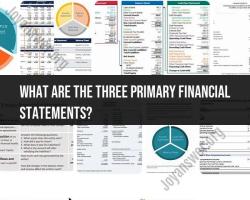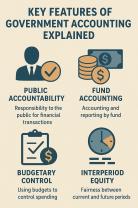What to invest in with my 401k?
Investing your 401(k) requires careful consideration of your financial goals, risk tolerance, and time horizon. Here are some investment options and strategies to consider for your 401(k):
Diversified Portfolio: Diversification is a key strategy to spread risk. Consider allocating your 401(k) investments across various asset classes, such as stocks, bonds, and cash equivalents. This can help reduce the impact of market volatility on your portfolio.
Stocks (Equities):
- Large-Cap Stocks: Invest in well-established, large companies known for stability and growth.
- Mid-Cap and Small-Cap Stocks: These offer potential for higher growth but come with increased risk.
- International Stocks: Consider exposure to global markets for diversification.
Bonds:
- Government Bonds: Generally considered low-risk, with lower yields.
- Corporate Bonds: Offer potentially higher yields but come with credit risk.
- Municipal Bonds: Tax-advantaged bonds issued by state and local governments.
Target-Date Funds: These funds automatically adjust your asset allocation based on your retirement date. They offer a hands-off approach to managing your 401(k) investments.
Index Funds and Exchange-Traded Funds (ETFs): These funds replicate the performance of a specific market index, providing broad exposure to various assets while typically having lower fees.
Mutual Funds: Actively managed funds are run by professional fund managers who make investment decisions on your behalf. Ensure you understand the fees associated with these funds.
Real Estate Investment Trusts (REITs): Consider adding REITs to your portfolio for exposure to the real estate market, which can provide diversification and income.
Cash and Money Market Funds: These provide safety and liquidity, but their returns are typically lower. They can be useful for short-term needs or as a portion of your portfolio for stability.
Alternative Investments: Some 401(k) plans offer alternative investments like commodities, hedge funds, or private equity. These can be riskier and less liquid, so approach them with caution.
Employer Stock: If your employer offers company stock as an investment option, be cautious not to over-concentrate your 401(k) in it. Holding a significant portion of your retirement savings in a single stock can be risky.
Roth 401(k) Option: Some plans offer a Roth 401(k), where contributions are made after-tax. Earnings grow tax-free, and withdrawals in retirement are tax-free. This can be a tax-efficient option if you expect your tax rate to be higher in retirement.
Consider Your Risk Tolerance: Assess your risk tolerance to determine an appropriate mix of investments. Younger investors may tolerate more risk for potentially higher returns, while those closer to retirement may prefer a more conservative approach.
Rebalance Periodically: Regularly review and rebalance your portfolio to maintain your desired asset allocation. Market fluctuations can cause your portfolio to drift from your target allocation.
Seek Professional Advice: If you're uncertain about how to invest your 401(k) or need assistance with financial planning, consider consulting a financial advisor.
Remember that your investment strategy should align with your long-term financial goals, and it's important to periodically review and adjust your portfolio as your circumstances change. Additionally, take advantage of any employer matching contributions, as this can significantly boost your retirement savings. Finally, consider your overall financial picture, including other retirement accounts (e.g., IRAs) and taxable investments, to create a comprehensive investment strategy.
A 401(k) is a retirement savings plan offered by many employers. It allows you to save money from your paycheck on a pre-tax basis, which means that you don't pay taxes on the money until you withdraw it in retirement. This can save you a significant amount of money in taxes, especially if you are in a high tax bracket.
There are a number of different investment options available for 401(k) plans. The most common options include:
- Target-date funds: Target-date funds are a type of mutual fund that automatically invests your money in a mix of stocks and bonds. The mix of stocks and bonds changes as you get closer to retirement, becoming more conservative as you get older.
- Index funds: Index funds are a type of mutual fund that tracks a specific market index, such as the S&P 500. Index funds are generally low-cost and offer broad diversification.
- Individual stocks and bonds: You can also invest in individual stocks and bonds in your 401(k) plan. However, this option is more risky and requires more research.
When choosing investments for your 401(k) plan, it is important to consider your risk tolerance and investment goals. If you are young and have a long time horizon, you can afford to take more risk with your investments. However, if you are closer to retirement, you may want to choose more conservative investments.
You should also consider your employer's match. Many employers offer to match a portion of your 401(k) contributions, up to a certain percentage. This is essentially free money, so be sure to contribute enough to your 401(k) plan to take advantage of the full match.
Here are some strategies for maximizing your 401(k) investment:
- Start early. The earlier you start saving for retirement, the more time your money has to grow.
- Increase your contributions regularly. As your income increases, try to increase your 401(k) contributions as well.
- Take advantage of your employer's match. If your employer offers a 401(k) match, be sure to contribute enough to take advantage of the full match.
- Rebalance your portfolio regularly. As you get closer to retirement, you may want to rebalance your portfolio to become more conservative.
- Get professional help. If you need help choosing investments or developing a retirement savings plan, consider working with a financial advisor.
By following these strategies, you can make the most of your 401(k) investment and reach your retirement goals.












